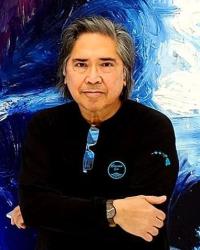
Contact Information
Biography
Trained in Southeast Asian history, European intellectual history and anthropology, my research interests include areas such as language and power, the politics of translation and literature, Comparative Colonialisms and nationalism, the social history of media and mediation, critical theory and anthropology, empire, race and gender. Much of my writing has been on the colonial and post-colonial Philippines and the United States.
Awards
Research
Selected Research
- The Sovereign Trickster: Death and Laughter in the Age of Duterte, Durham: Duke Univ. Press, 2022. Print.
- “Duterte’s Phallus: On the Aesthetics of Vulgarity,” 2020-21, talk delivered at: Southeast Asian Studies Center, UC Berkeley; at Yale Univ.; at New York University. https://yale.app.box.com/s/lf047607rinyw8k9pyvet86n12exvda6?fbclid=IwAR0PL6_DRFG5KbXN9cOrjto6fjOSXwZKVyijQvtTu5HGYTN9JMAEw214Qas
- “Photographic Power: Tales from the United States and the Philippines,” History Lecture Series, Univ. of Washington, 2021. https://www.youtube.com/watch?v=W0kLJX8Oax4
- “Telling Times: Nick Joaquin, Storyteller,” positions: Asia Critique, v. 29, no.1, 121-141. https://doi.org/10.1215/10679847-8722810
- “Photography and the Biopolitics of Fear: Witnessing the Philippine Drug War,” positions: Asia Critique, November, v. 28, no. 4, 905-933. https://read.dukeupress.edu/positions/article-abstract/28/4/905/167026/Photography-and-the-Biopolitics-of-FearWitnessing?redirectedFrom=fulltext Download PDF
- Rafael, Vicente L., “Linguistic Currencies: The Translative Power of English in the United States and Southeast Asia,” in The Translator, 25:2, 2019, 142-158, https://www.academia.edu/40893944/Vicente_L._Rafael_Linguistic_currencies_the_translative_power_of_English_in_Southeast_Asia_and_the_United_States Download PDF
- Rafael, Vicente L., "The Sovereign Trickster," The Journal of Asian Studies Vol. 78, No. 1 (February) 2019: 141-166. https://www.academia.edu/38538056/Vicente_L._Rafael_The_Sovereign_Trickster Download PDF
- Rafael, Vicente L., “Colonial Contractions: The Modern Philippines, 1565-1946,” in the Oxford Research Encyclopedia of Asian History, edited by David Ludden, New York and London: Oxford University Press, 2018, http://asianhistory.oxfordre.com/view/10.1093/acrefore/9780190277727.001.0001/acrefore-9780190277727-e-268 Download PDF
- Joaquin, Nick. The Woman Who Had Two Navels and Tales of the Tropical Gothic. New York: Penguin Classics, 2017. (Introduction by Vicente L. Rafael.)
- Rafael, Vicente L. Motherless Tongues: The Insurgency of Language amid Wars of Translation. Durham, NC: Duke University Press, 2016. Print.
- Rafael, Vicente L., “Mid-education, Translation and the Barkada of Languages: Reading Renato Constantino with Nick Joaquin,” Kritika Kultura (Ateneo de Manila Univ.), 1-29, http://kritikakultura.ateneo.net Download PDF
- Rafael, Vicente L. The Promise of the Foreign: Nationalism and the Technics of Translation in the Spanish Philippines. Durham: Duke University Press, 2005. Print.
- Rafael, Vicente, Rafael, The Undead: Notes on Photography in the Philippines, 1898-1920s (From White Love and Other Events in Filipino History, 2000). https://www.academia.edu/40893984/Vicente_L._Rafael_The_Undead_Notes_on_Photography_in_the_Philippines_1898-1920s Download PDF
- Rafael, Vicente L. White Love and Other Events in Filipino History. Durham, NC: Duke University Press, 2000. Print.
- Rafael, Vicente L. Figures of Criminality in Indonesia, the Philippines and Colonial Vietnam. Ithaca, N.Y.: Southeast Asia Program Publications, Southeast Asia Program, Cornell University, 1999. Print.
- Rafael, Vicente L. Discrepant Histories: Translocal Essays on Filipino Cultures. Philadelphia: Temple University Press, 1995. Print.
- Rafael, Vicente L. Contracting Colonialism: Translation and Christian Conversion in Tagalog Society Under Early Spanish Rule. Hardbound edition, Ithaca: Cornell University Press, 1988. Paperback edition, Durham, NC: Duke University Press, 1993.
Research Advised
- Lin Hongxuan. "Ummah Yet Proletariat: Islam and Marxism in the Netherlands East Indies and Indonesia, 1915 - 1959." PhD diss., University of Washington.
- Lai, Symbol. Decolonizing Okinawa: Social Science, Agriculture, and US Militarism, 1945-1972. Diss. University of Washington, 2017. Chairs: Tani Barlow and Vince Rafael.
- Lumba, Allan. Monetary Authorities: Market Knowledge and Imperial Government in the Colonial Philippines, 1892 - 1942. Diss. University of Washington, 2013. Chair: Vicente Rafael.
- Inherited Destinies, phantom limbs: Empire, settler colonialism, and trauma in the Philippines and Peru, 1920-1928. Seattle. In progress.
- Arthit Jiamrattanyoo. "Conquest of Amity: Affective Politics and Cultures of Friendship in the Spanish Colonization of the Philippines, 1521-1762." Dissertation, Universty of Washington, ongoing.
Courses Taught
Autumn 2025
Summer 2025
Spring 2025
Winter 2025
Autumn 2024
Summer 2024
Spring 2024
Winter 2024
Autumn 2023
Summer 2023
Spring 2023
Winter 2023
Autumn 2022
Summer 2022
Spring 2022
Winter 2022
Autumn 2021
Summer 2021
Spring 2021
Winter 2021
Autumn 2020
Summer 2020
Spring 2020
Winter 2020
Autumn 2019
Summer 2019
Spring 2019
Winter 2019
Graduate Study Areas
Division: Asia--Pre-History to the Present
This field is constructed with an emphasis on island Southeast Asia and the Philippines from 1521 to the present.
Division: United States History
Asian American socio-cultural histories, with an emphasis on Filipino Americans and Filipino overseas workers
Division: Comparative History (Historiography, Comparative Ethnicity & Nationalism, and Comparative Colonialisms)
A field in Comparative Historiography will include Nationalist and postcolonial conceptions of history, deconstruction, critical theory especially as these relate to the politics of translation, religion, and media technologies. A field in Comparative Colonialisms will carry a focus on United States and Spanish imperialism in Asia and the Pacific. The field in Comparative Nationalism and Ethnicity focuses on the historical and technological conditions for the rise of nationhood, as well as the role of mass media, translation and the languages of power in nationalist discourses.